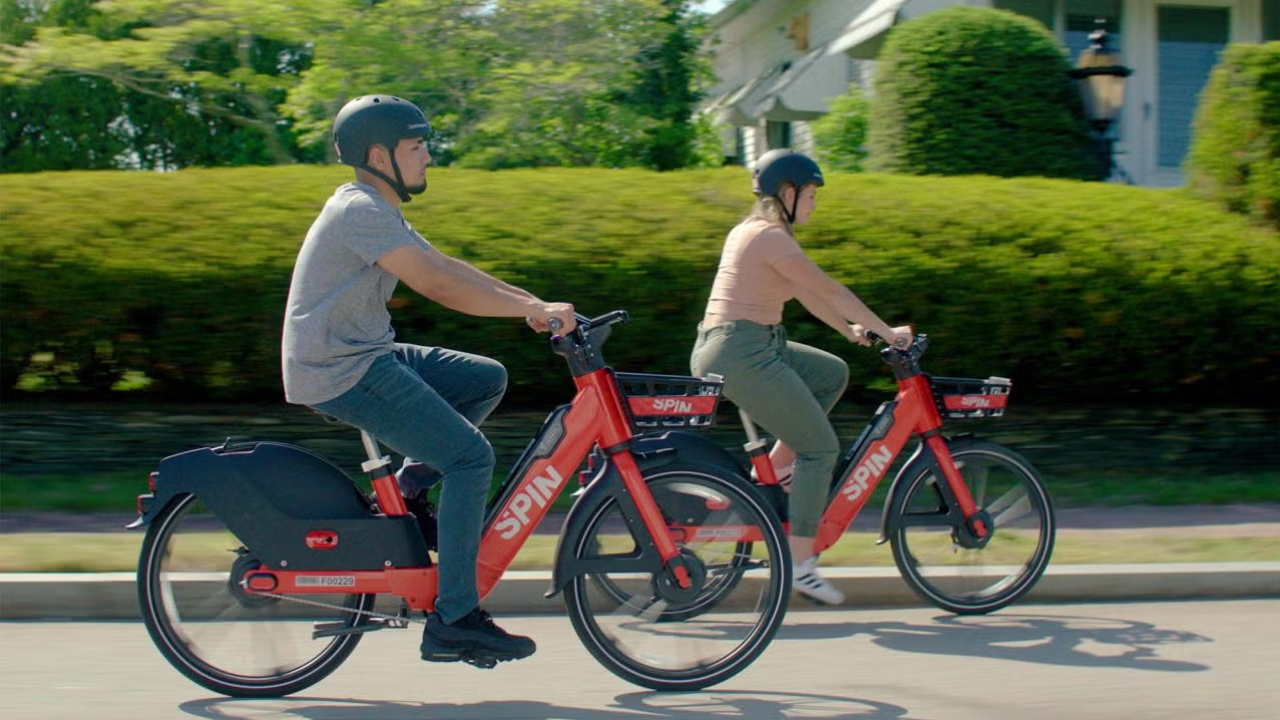
Spin E-Bikes and E-Scooters Launch Sept. 1
UC Davis and City Set Zones for Slow Riding, No Riding, No Parking
The city of Davis, in partnership with UC Davis, is launching a new, shared e-bike and e-scooter program this fall. Spin, headquartered in San Francisco and a leader in shared micromobility, was selected by the city and campus through a competitive bid process.
Spin will begin community outreach today (Aug. 14). Starting on Sept. 1, the company will deploy a small number of devices in the city and on the UC Davis campus, gradually increasing to the full fleet of 400 e-bikes and 200 e-scooters once UC Davis’ fall quarter begins at the end of the month. The agreement between Spin, the city and university will last for an initial three-year period, with the option of annual renewals after that upon mutual agreement between the three parties.

“I’m encouraged by all the work done with UC Davis, Spin and city staff to tailor this program to our community’s needs and desires,” said Mayor Will Arnold. “Many discussions and iterations took place to help resolve past issues and assist those in our community that want more sustainable transportation or don’t have access to a vehicle. Our partnership with UC Davis continues to reflect shared goals, investments and values.”
Clare Shinnerl, vice chancellor for UC Davis Finance, Operations and Administration, welcomed the partnership.
“The university is delighted to collaborate with the city of Davis and partner with Spin to operate in our community,” Shinnerl said. “This shared micromobility program will help improve connections between our campus, downtown Davis and the rest of the city. We’re leading the way in reducing vehicle trips in our community and this partnership brings back micromobillity in a safer and more responsible manner.”
Shared micromobility provides a flexible alternative for many individuals who need first- and last-mile connections to transportation, employment, grocery stores and more. Micromobility also helps those without access to a vehicle to reach jobs, health care and other essential services. Likewise, these devices are a tool to help lower greenhouse gas emissions and create an environmentally sustainable transportation network in Davis, fitting within the goals of the city’s Climate Action and Adaptation Plan. While planning for these shared micromobility devices and benefits, the city also worked with Spin to find solutions to past issues and complaints from the previous pilot with Jump Bikes, in particular around device parking, device redistribution and speeds.
Parking verification, slow zones
Riders will be charged extra fees if devices are parked incorrectly — for example, blocking a city sidewalk or not locked to a bike rack. Spin requires users to submit a photo of how the device is parked at the end of the trip. If a device is not parked correctly, then the rider cannot end the ride and will be charged each minute until the device is parked according to the guidelines. Spin also has the right to suspend user accounts if a user repeatedly parks incorrectly (e.g. at no-parking zones, bus stops, loading zones, on private property, etc.).
MORE INFO
- City of Davis
- UC Davis Transportation Services
- Spin website
- Questions and requests for adaptive devices: 1-888-262-5189 or by email
- Questions in the city of Davis: Jennifer Donofrio, 530-747-8284 or by email
Additionally, Spin will re-distribute devices throughout the day and ensure that they are deployed in designated parking zones and higher-use areas, and are not parked for more than 24 hours. Community members who see devices parked improperly can also contact Spin, and within 90 minutes, the company will relocate that device. To help with parking downtown, the city plans to add approximately 30-50 new bike racks.
The city and campus will designate slow zones, no-ride zones and no-parking zones, which are electronically communicated to the devices to improve safety. These areas will be visible in the Spin phone app and devices will safely lower speeds or turn off the assist to help protect the safety of riders, multimodal users and pedestrians in these areas.
Spin requires all riders to have a valid driver’s license and be 18 years of age or older. Spin devices can only be used in the city and on the UC Davis campus. Using Spin requires riders to download the Spin app on their smartphones. Users pay $1 to unlock a device plus 32 cents per minute to ride. However, Spin has multiple lower-cost plans, including Spin Access (low-income), Spin Pass (prepaid), and University and Yolo Commute quarterly plans. Spin also offers free delivery of adaptive devices to users who request them.
A version of this article was originally published on UC Davis News.
Find more information about Spin at UC Davis from the Transportation Services website.